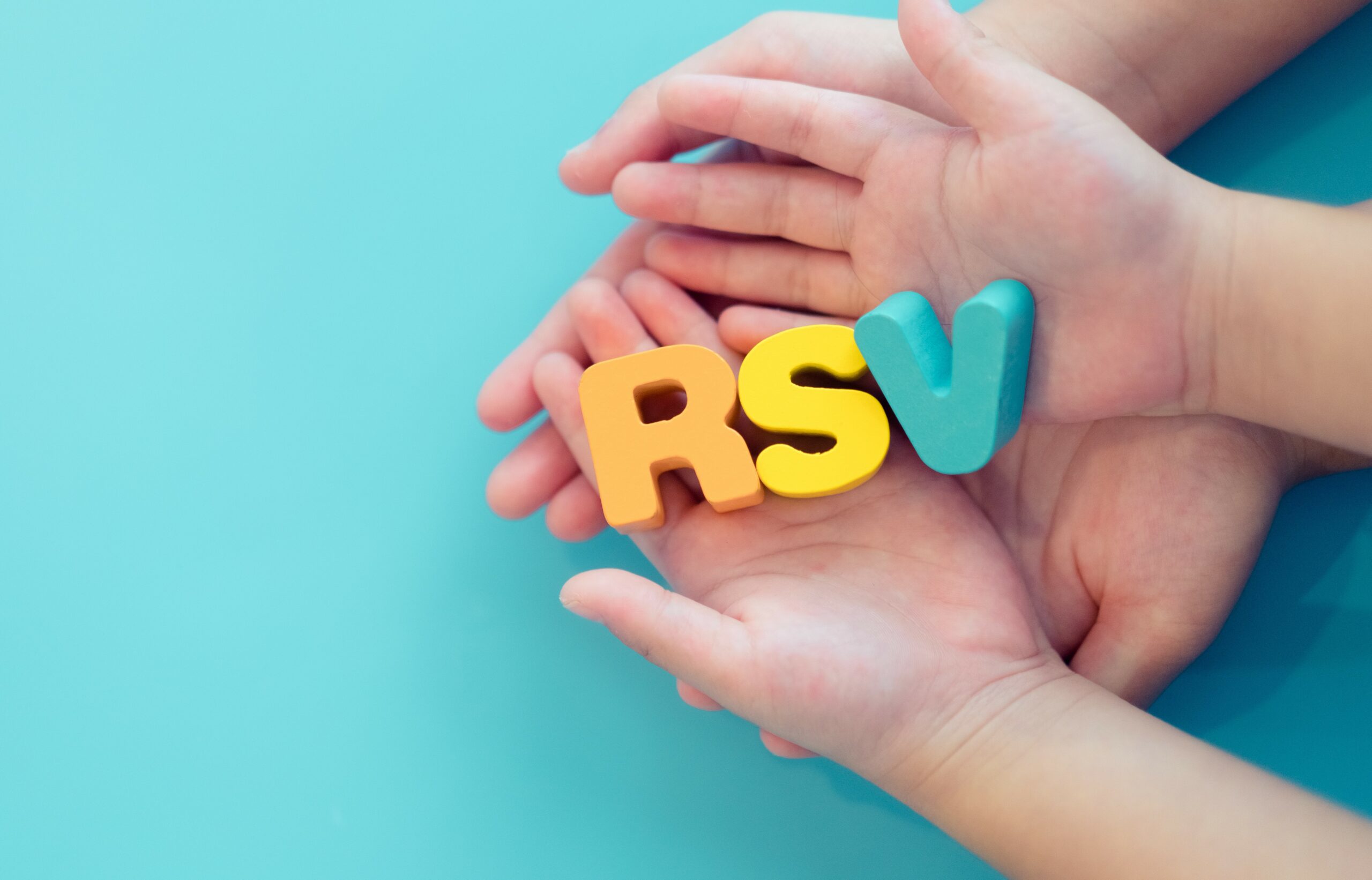Respiratory syncytial virus (RSV) is usually mild and doesn’t need any treatment. Most children do not need to see a doctor. If you are not sure if your child needs to see a doctor, call Health Links – Info Santé (204-788-8200 or toll-free 1-888-315-9257).
RSV is the most common virus that can infect the lungs and breathing tubes. RSV infection is most serious in young babies. Almost all children get the virus at least once before they are two years old. Older children and adults also get RSV at least every few years, but do not usually get very sick from it.
How is it spread?
RSV is very contagious. The virus is most common between late fall and early spring. RSV spreads the same way as a common cold:
- By touching something that has the virus on it, then touching your mouth, nose or eyes with unwashed hands.
- By being close (less than two metres apart) to someone with the infection who is coughing or sneezing. Droplets from the infected person can reach another person’s nose or mouth.
What are the symptoms of RSV?
Children with RSV have the same symptoms as a common cold, which may include:
- coughing
- runny nose
- fever
- decreased appetite and energy
- irritability
Some children (most often very young babies) may have bronchiolitis – an infection of the tiny airways that lead to the lungs that causes wheezing and difficulty breathing.
How is RSV treated?
RSV is usually mild and doesn’t need any treatment. Most children get better within a week or two. Sometimes children need to be hospitalized so that they can be watched closely and given fluids or oxygen if needed. Because RSV is a virus, antibiotics will not help a child get better faster (antibiotics kill bacteria, not viruses).
How can I protect my children from RSV?
Keep babies under six months old away from people with colds, if possible.
- Wash your hands and your children’s hands often to reduce the spread of germs.
- Breastfeeding /Chestfeeding. Breastmilk/chestmilk contains antibodies and other immune factors that help prevent and fight off illness.
- Don’t smoke. Make sure that your children are not around cigarette smoke, especially in the car or in your home.
- Make sure your child receives all recommended immunizations. Vaccines won’t prevent your child from getting RSV or other viruses that cause colds, but they will protect your child from some of the complications a cold can cause.
- Infants and young children who are at risk of severe RSV infection, such as those with heart or lung disease or those who are born very early, are eligible to receive an antibody medication to protect against RSV through the Manitoba RSV Prophylaxis Program.
What can I do if my child is sick?
Keep your child at home and as comfortable as possible. Offer plenty of fluids.
- Give acetaminophen or ibuprofen for fever. Ibuprofen should only be given if your child is drinking reasonably well. Do not give ibuprofen to babies under six months old without first talking to your doctor. Speak to a health-care provider if you are unsure of what to take or are unable to use these medications.
- If your baby is having trouble drinking, try to clear nasal congestion gently with a bulb syringe or with saline (salt water) nose drops.
- Do not give over-the-counter cough and cold medicines to a child younger than six years old. Although these drugs do not need a doctor’s prescription, they are not safe in young children.
- If you are using cough and cold medicines for children older than six years, read instructions carefully and give only the recommended dose.
When should I seek immediate medical care?
Take your baby to an emergency department if your child:
- has trouble breathing or has lips that look blue,
- is younger than three months old and has a fever
- is no longer able to suck or drink and is showing signs of dehydration (dry mouth, less urine output)
See a doctor if your child:
- has had a fever for more than 72 hours
- is not eating or is vomiting
- is not having wet diapers
- is coughing so bad that they are choking or vomiting
If you have questions about RSV, speak with your primary care provider – your doctor, registered nurse, public health nurse, nursing station or health centre , or call Health Links – Info Santé at 204-788-8200 or toll-free 1-888-315-9257.
For more information on where and when to seek health care, see Cold and Flu – When to Seek Healthcare .
Reprinted with permission from the Caring for kids (cps.ca)


